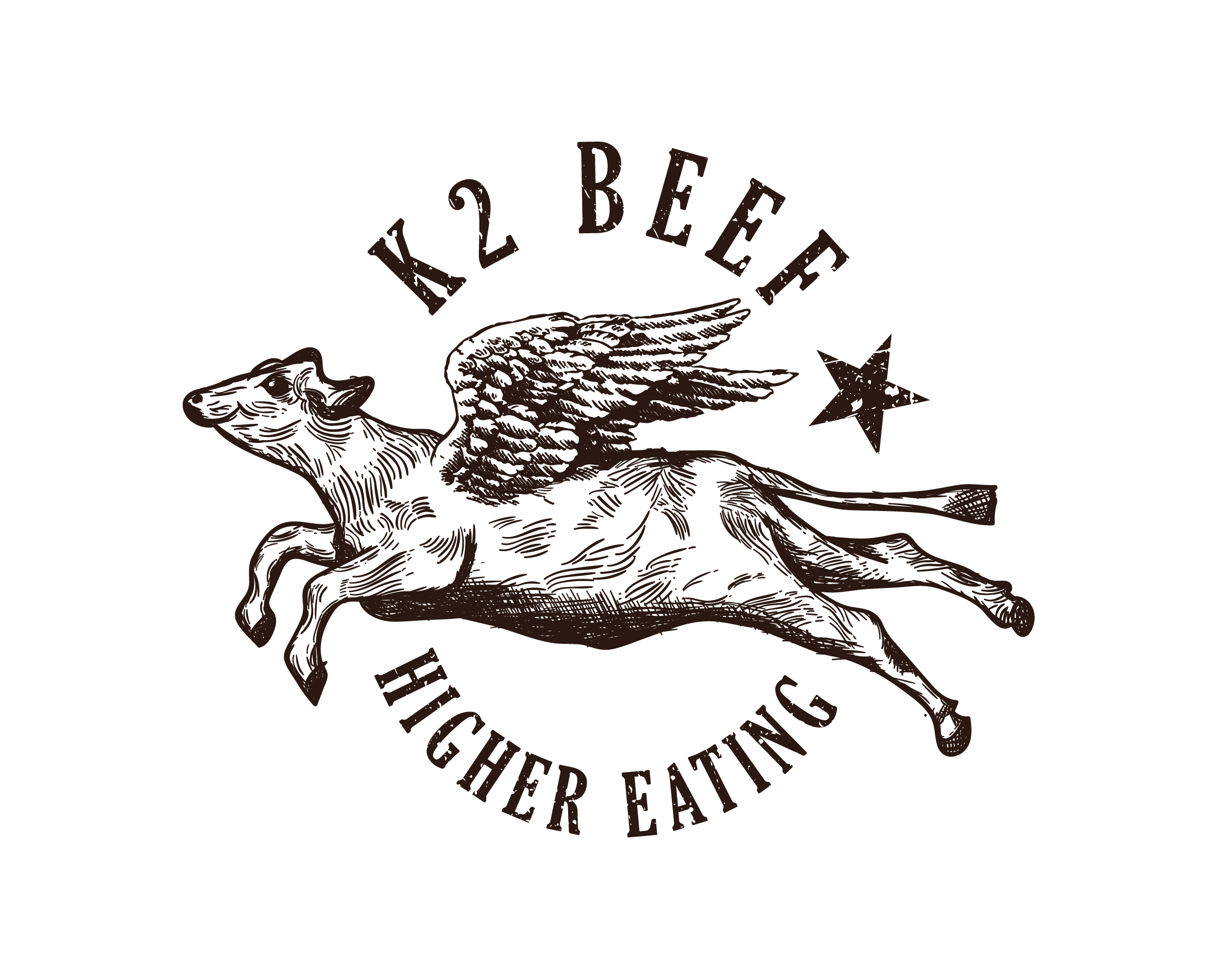Why is Grassfed Organic Beef considered “Higher Eating”? Isn’t all meat produced the same way? Is eating a “non-meat” diet better for the environment than including animals?
First ask yourself, without human interference, how does nature work? Are there any monocultures of just one type of plant or animal anywhere in a healthy natural system?
No! Complexity and diversity rule supreme and plants and animals are co-dependent! Why then do we consider it appropriate to use “modern” farming techniques to fight what has evolved over millions of years in natural systems? In the last few decades, food production systems have normalised monocultures and discarded nature’s complexity in the name of “production efficiency”.
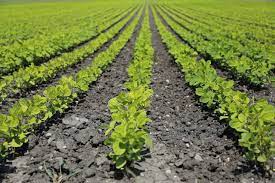
Which one is closer to a natural system?
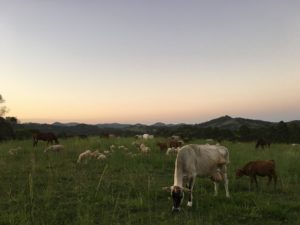
Kandanga Farm has an entirely pasture-raised Certified Organic farming system. In beef, some call this “grassfed” however you may not know that over 30% of a cow’s diet is “non-grass” – herbs, forbes, bushes, trees and even weeds- so we prefer to call it Pasture!
Intensive production systems, monocultures and food miles (in plant & animal production) has largely isolated consumers from the realities of seasonal supply. As happens in nature, with no grain feeding, our LOCAL meat actually has the flavour from the herbs, forbes and other things animals eat seasonally. It also has K2, the “missing link” Vitamin that is eliminated in modern grain-fed animal production systems.
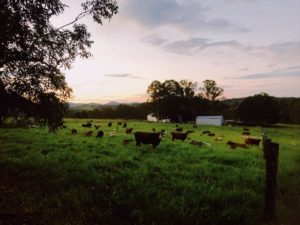
Diversity at Kandanga Farm
At Kandanga Farm, as with all “Regenerative” systems; stock movements mimic nature with mixed herds moved daily through the paddocks. This form of “time controlled grazing” cycles carbon and nutrients with herd impact (trampling action, manure and urine) followed by suitably long recovery periods to let plants (and roots) regrow sequesting more nutrients with stock getting move to fresh pasture almost daily. Lignified, cellulose (pasture) isn’t allowed to oxidise, be burnt or have chemical or mechanical treatments (mowing) that lead to a release of carbon dioxide.
Farms are benchmarked for a range of recognised indicators of a Regenerative System (including Biodiversity, Environmental Flows, Soil Carbon and even Community contribution).
We love bugs like dung beetles, worms and microbes. Weeds play their part too both in helping fix soil deficiencies and fully meeting dietary requirements of the animals. Synthetics and chemicals are eliminated trusting nature to find it’s own balance. We are students of biology rather than chemistry.
How does this differ from other food production systems?
Most importantly, animals are used in fixing and regenerating land, the by-product is spectacular organic meat! With the alternative, a “plant based diet” system, nutrients are stripped (harvested as food) and then replaced artificially (as fertiliser).
We love our animals and they continue to surprise us with their resilience and adaptability. In a region with almost no other Certified Organic cattle producers, we are reminded daily that what we do just can’t be done. When stock are nourished and happy, the natural immunity bred into them over thousands of years comes to the fore. They don’t need synthetic assistance when their environment is stress free and all their needs are catered for. It gives us great pride to be able to share this ethos with you and without animals in farming systems we move to an unnatural system (soley plant based). In cycling nutrients, ruminants in particular have a role taking the place of fossil fuel burning machinery and chemicals; “if we didn’t have them we’d have to invent them!”
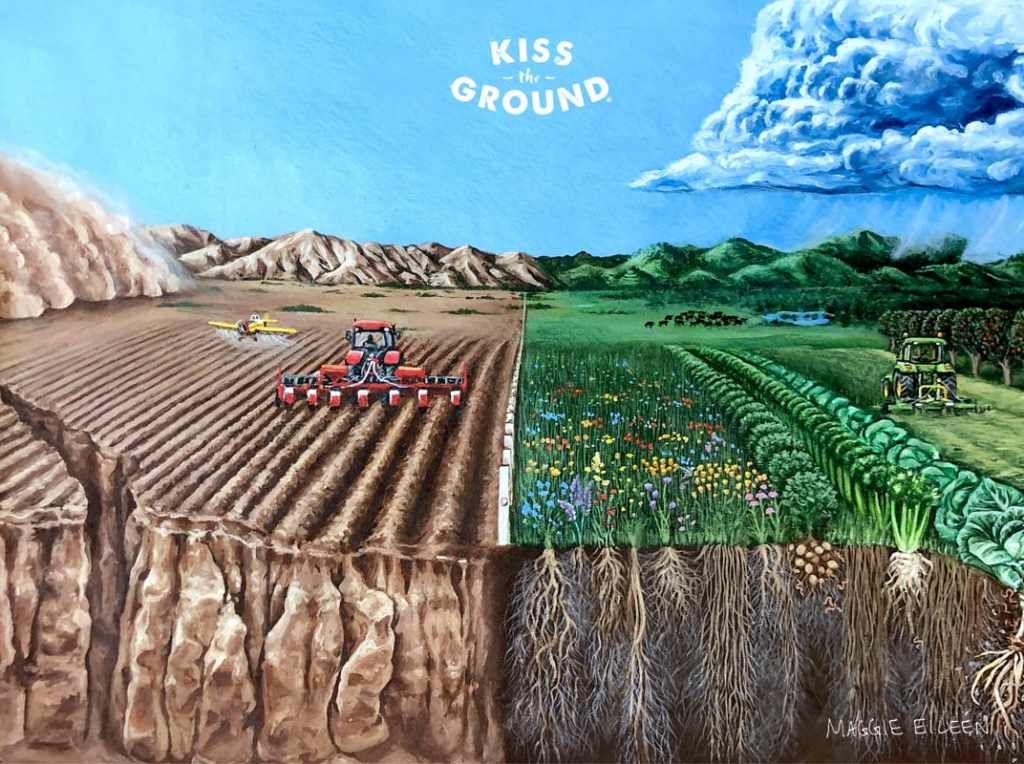
Image courtesy of Kiss The Ground (Documentary Netflix)
